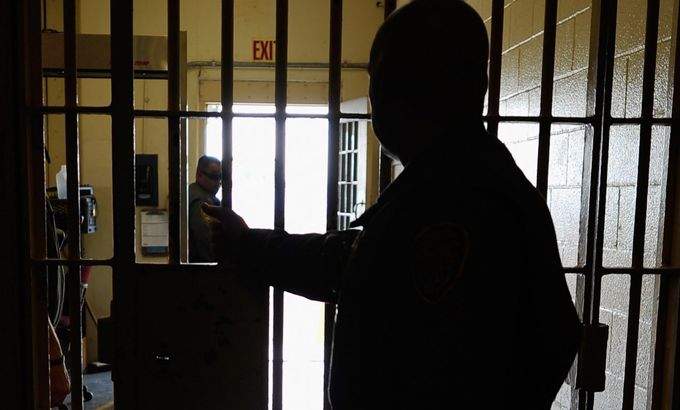
Is the US war on drugs racist?
We examine a policy that has destroyed communities and put a disproportionate number of African-Americans behind bars.
Gil Kerlikowske, Barack Obama’s drug tsar, has said the US war on drugs has not been successful and that “it’s very clear we can’t arrest our way out of this problem”.
|
“The war on drugs … is a racist policy that’s been quite successful …. It’s a war on poor people who happen to use drugs …. Rather than address the problem of continuing poverty, lack of education, poor housing, unemployment, our system has decided to felonise people …. [It has been] a mask for continuing the policies of racial oppression and marginalisation that have been in effect in this country for several hundred years.“ – Deborah Small, the executive director of Break the Chains |
But despite promises by the US president to re-evaluate US drug policies, more than half of Obama’s drug control budget continues to go towards law enforcement.
And as the war on drugs rages in US inner cities, the issue has not come up on the campaign trail of either Obama or his Republican presidential opponent, Mitt Romney.
Al Jazeera’s Fault Lines presenter Sebastian Walker went to Baltimore, one of the country’s most dangerous cities, and found that it is African-Americans who pay the greatest price in this war.
Drug arrests have swelled since the 1970s and African-Americans make up a disproportionate percentage of those arrested.
They make up about 13 per cent of the US population and about the same percentage of all US drug users, but according to the American Civil Liberties Union, they account for over 35 per cent of all drug arrests. They also represent 55 per cent of all convictions for drug possession and 74 per cent of all people imprisoned for drug possession.
|
“[There] is an unconscious sort of sense among well-intended people … that this is a problem of black people, it’s a problem of the ghetto … [so] we need these laws to protect them …. And to protect them we needed to crackdown on those who were plaguing them with the traffic …. There was an attempt to help.” – Eric Sterling, the president of the Criminal Justice Policy Foundation |
Additionally, sentences imposed on black people in the federal system tend to be about 10 per cent longer than those given to white people convicted of the same crime.
“It’s not a war on drugs, don’t ever think it’s a war on drugs. It’s a war on the blacks, it started as a war on the blacks,” says Ed Burns, the co-creator of the television show The Wire. “It’s now spread [to] the Hispanics and poor whites, but initially it was a war on blacks. And it was designed, basically, to take that energy that was coming out of the civil rights movement and destroy it.”
So, is the war on drugs a racist policy or simply a failed one?
Inside Story US 2012, with presenter Shihab Rattansi, discusses with guests: Deborah Small, the executive director of Break the Chains, a drug policy reform advocacy organisation; Eric Sterling, the president of the Criminal Justice Policy Foundation; and Kevin Sabet, a former senior drug policy adviser for the Obama administration.
|
“[In the] late 60s and early 70s mainly, jobs started leaving Baltimore, industry started leaving, going overseas wherever it ended up, it just wasn’t here in Baltimore any more. But it was also around that time that Richard Nixon decided that he was going to start a war against public enemy number 1 – drugs. You have to show that you have a drug criminal problem so how do you do that? Through arrests. We went crazy arresting people for crack cocaine because of this so-called epidemic that we were having. And we just put tonnes of black people in prison from our inner cities, ungodly numbers.” Neill Franklin, a former police commander |
FACTS ABOUT THE WAR ON DRUGS
- The term ‘war on drugs’ was first used by President Richard Nixon in 1971
- The US significantly tightened drug laws in the early 1970s
- The US has the highest rate of incarceration in the world
- Although the US has five per cent of the world’s population it has 25 per cent of its prisoners
- Mandatory minimum sentences for drug offences began in the 1980s
- President Ronald Reagan renewed the focus on the so-called ‘war on drugs’
- ‘Three strikes’ laws were imposed in the early 1990s
- Harsher sentences were imposed for crack compared to powder cocaine in the 1980s
- FBI: 1.6 million people were arrested for drug crimes in 2010
- Drug arrests are the largest single US arrest category
- There are three times more arrests for drug crimes than for violent crimes
- State and local police get federal money for drug-interdiction efforts